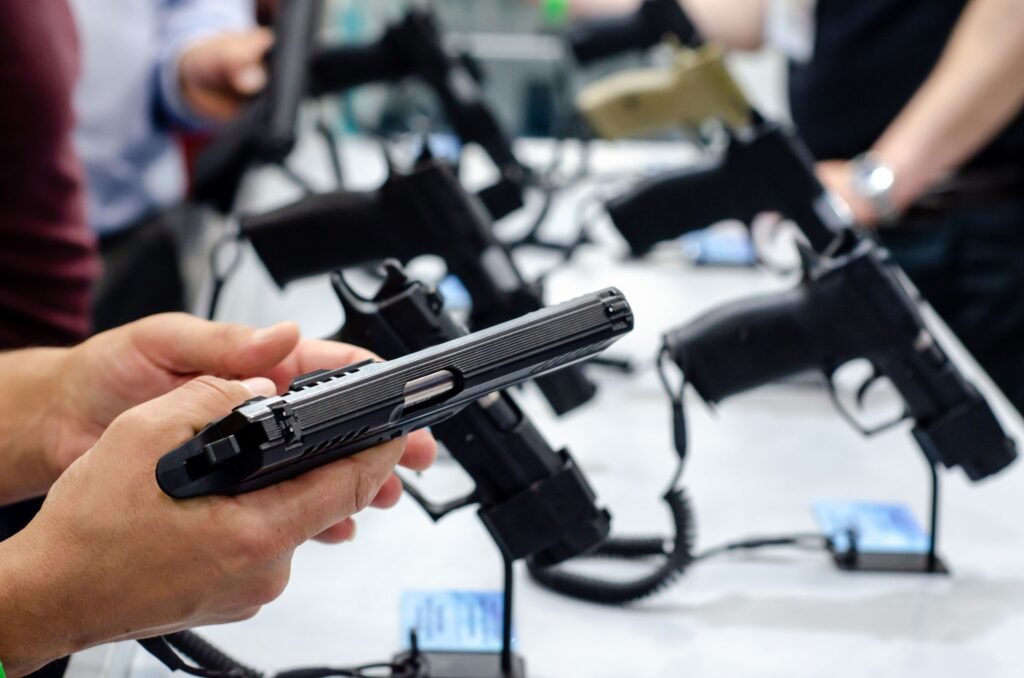Gun control laws in the United States have been a hotly debated topic for decades, with passionate advocates on both sides of the argument. In 2025, the conversation around gun control continues to be an essential part of national politics, especially in light of rising concerns over gun violence and mass shootings. This article will delve into what changes to gun control laws we can expect in 2025, what the major proposals are, and how these changes could impact American society.
The Current State of Gun Control in the U.S.
Before we look ahead to what might change in 2025, it’s important to understand the current state of gun control laws in the U.S. Gun control laws vary by state, but there are federal laws that govern many aspects of gun ownership.
At the federal level, the Gun Control Act of 1968 and the Brady Handgun Violence Prevention Act of 1993 are two major pieces of legislation that regulate the sale, possession, and transfer of firearms. However, despite these laws, the U.S. still has one of the highest rates of gun ownership and gun violence in the world.
In recent years, states like California, New York, and Illinois have implemented stricter gun control measures, such as universal background checks and bans on assault weapons, while other states, particularly those in the South and Midwest, have loosened their restrictions. The result is a patchwork of gun laws that vary widely across the country.
Why Gun Control is a Hot Topic for 2025
In 2025, the debate over gun control is likely to intensify, driven by several key factors:
1. Increase in Gun Violence and Mass Shootings
Gun violence, including mass shootings, has become a serious concern for many Americans. According to the Gun Violence Archive, there were over 600 mass shootings in the U.S. in 2023 alone. High-profile incidents, such as the shootings at schools, shopping malls, and other public places, continue to fuel calls for stricter gun control.
As 2025 approaches, the pressure to address gun violence is likely to mount, particularly in the aftermath of any high-profile incidents. Public opinion on the need for more regulation may sway lawmakers to take action.
2. Political Gridlock on Gun Control
One of the main reasons gun control laws have been difficult to pass is the deep divide in American politics over the issue. Many conservatives argue that the Second Amendment guarantees the right to bear arms and that any restrictions on gun ownership infringe upon personal freedoms. On the other hand, liberals and many public safety advocates argue that stricter regulations are needed to reduce gun violence and protect citizens.
In 2025, this gridlock is expected to continue, but public pressure may push lawmakers to compromise on certain aspects of gun control legislation.
3. Rising Gun Ownership in America

Over the past decade, there has been a sharp increase in gun ownership in the United States, particularly following the COVID-19 pandemic and rising concerns over personal safety. In 2020, there were more than 23 million guns sold in the U.S., the highest number on record.
This rise in gun ownership is likely to influence the conversation around gun control in 2025, with debates focusing on how to regulate the sale and possession of firearms more effectively without infringing on the rights of responsible gun owners.
What Changes to Gun Control Laws Can We Expect in 2025?
As we look ahead to 2025, several key proposals and potential changes to gun control laws are being discussed. These proposals vary by state and at the federal level, but they all aim to address gun violence, regulate the sale of firearms, and balance the rights of gun owners with public safety concerns.
1. Universal Background Checks
One of the most widely supported changes to gun control laws is the expansion of background checks for all gun purchases. Currently, federal law requires background checks only for purchases made from licensed dealers. However, private sales and transactions at gun shows often do not require background checks, creating a loophole.
In 2025, there is a strong push to close this loophole and ensure that all gun purchases, regardless of where they take place, are subject to background checks. This would make it more difficult for people with criminal backgrounds or mental health issues to obtain firearms.
2. Assault Weapons Ban

Another major proposal that is likely to gain traction in 2025 is the reinstatement of a federal ban on assault weapons. The original assault weapons ban, which was enacted in 1994, expired in 2004. Since then, the sale of military-style rifles, such as the AR-15, has increased.
Many gun control advocates argue that these types of weapons are designed for military use and have no place in civilian hands. In 2025, we can expect renewed discussions about banning assault weapons or at least restricting their sale to reduce the potential for mass casualties in shootings.
3. Red Flag Laws
Red flag laws, also known as extreme risk protection orders (ERPOs), allow law enforcement or family members to petition a court to temporarily remove firearms from individuals who are considered to be a danger to themselves or others. These laws have been enacted in several states, but there is no nationwide standard.
In 2025, we may see increased momentum for the implementation of red flag laws across the country. Advocates argue that these laws can help prevent suicides and mass shootings by intervening before violence occurs. Critics, however, warn that red flag laws could infringe upon due process rights and be used inappropriately.
4. Ban on High-Capacity Magazines
Another potential change to gun control laws in 2025 is a ban on high-capacity magazines. High-capacity magazines allow firearms to hold more than 10 rounds of ammunition, which can increase the lethality of mass shootings. Many gun control advocates argue that restricting the availability of high-capacity magazines is a reasonable step toward reducing gun violence.
In 2025, we can expect to see more debates on this issue, particularly in the wake of mass shootings where high-capacity magazines have been used.
5. Gun Buyback Programs
Some states and cities have implemented gun buyback programs, where individuals can voluntarily turn in their firearms in exchange for cash or other incentives. These programs have had mixed results in terms of reducing gun violence, but they remain popular among certain communities.
In 2025, we may see more widespread adoption of gun buyback programs as part of a broader strategy to reduce the number of firearms in circulation, particularly in urban areas.
The Challenges of Implementing Gun Control Laws in 2025
Despite the growing calls for more stringent gun control laws, there are several challenges to implementing these changes in 2025. These include:
1. Political Resistance
As mentioned earlier, gun control remains a deeply divisive issue in American politics. Many Republican lawmakers and gun rights organizations, such as the National Rifle Association (NRA), oppose many proposed gun control measures. Convincing lawmakers to pass legislation that restricts gun access may be difficult, especially in a highly polarized political environment.
2. Enforcement and Compliance
Even if new gun control laws are passed, enforcing them effectively will be a significant challenge. The U.S. has millions of guns already in circulation, and ensuring that individuals comply with new restrictions could be difficult. Additionally, some gun owners may resist changes to the laws, making enforcement more complicated.
3. Cultural Attitudes Toward Guns
Guns have deep cultural significance in many parts of the U.S., particularly in rural areas where hunting and shooting are traditional activities. Changing attitudes toward guns may take time, and any significant restrictions on gun ownership could face resistance from those who see the right to own firearms as fundamental to their personal freedom.
Conclusion: The Future of Gun Control Laws 2025
The debate over Gun Control Laws 2025 will likely continue to be a key issue in U.S. politics, particularly as gun violence remains a persistent problem. While there is growing support for measures such as universal background checks, assault weapons bans, and red flag laws, the political and cultural challenges to passing such laws are significant.
In 2025, we may see incremental changes to gun control laws at the federal and state levels, but achieving comprehensive reform will require overcoming deep political divisions. As the conversation continues, it is essential for lawmakers to consider both the rights of responsible gun owners and the need to protect public safety.
Ultimately, the future of gun control in the U.S. will depend on the ability of lawmakers, advocates, and citizens to find common ground and create policies that strike a balance between the right to bear arms and the need to reduce gun violence.
Also read – Women in Business: Top Female CEOs to Watch This Year






